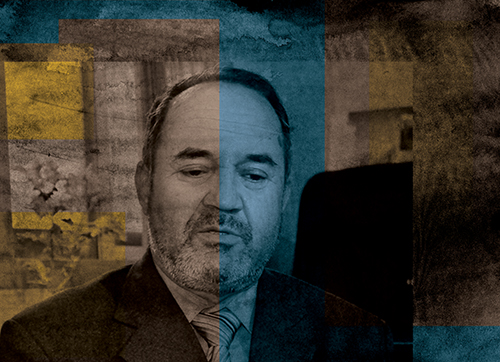Saheb-Nazar Moradi is an urban development specialist and former member of the planning committee of Kabul Municipality. He has a Ph.D. in urban engineering and history. He was internally displaced in Afghanistan during the time of the Taliban and ultimately left the country in exile for many years.
Can you share with us some memories of times when your rights have been violated and how it has influenced your life?
When the Taliban seized Kabul in 1995, my family and I were forced to move within Afghanistan to Mazar Sharif. While we lived there during the war, the Taliban bombarded our house and eight members of my family, including my brother’s children , were severely wounded. My parents were in a terrible condition. I’m still deeply affected when I remember those terrible days where I was taking care of the wounded members of my own family.
What gives you hope for the future?
Comparing Afghanistan today with Afghanistan of the past gives me considerable consolation. Afghanistan today is not the Afghanistan of 10 years ago. But when you look deeper into the details, then it is a disappointment. However, there are positive developments: schools have been established, the children of this country are learning, young people are advancing in their thinking, the media and mass communication facilities have developed. Freedom of speech has been one of the most important achievements of this decade, and democracy has been adopted as the means of running the society.
What do you consider to be one of the most important achievements since the fall of the Taliban in Afghanistan?
In the contemporary history of Afghanistan, that is during the past 300 years, we have always been ruled by authoritarian governments that have taken power through violence and coup d’états. Yet today, we bear witness to a new form of governance. The people have voted three times now to elect their president.
What is your worst fear today?
The arrival of the international forces brought a period of safety and stability to Afghanistan – the war at last ended. People grew hopeful, but not too long after, the environment of war returned. Today, the terrorising extremist forces are knocking on the gates of Kabul and the other cities of Afghanistan. These are the same forces who have previously ruled our country, who are opposed to democracy, the education of women and refuse to recognise women as citizens, who violate civil and human rights, whose logic is flogging, force, imprisonment and execution. My fear is that they may again return if the people fail to learn from the previous experience of living under the rule of that group. We must face up to the present realities. We must unite against the extremists to defend the achievements of the past 10 years. These achievements belong to the people of Afghanistan.
What are the biggest challenges facing Afghanistan?
One of the problems in Afghanistan is its demographic structure, and regional and ethnic cultural antagonisms and differentiations. These elements do not facilitate social cohesion.
Is it possible that girls could once again be banned from schools and women excluded from social participation, as was the case under the Taliban?
I do not think that the people of Afghanistan will allow the spine-breaking experience of the Taliban and their rule by bayonets to be repeated. The Taliban are an instrument at the disposal of other countries that have their own strategy for the future of the region. They will remain a threat as long as the government of Afghanistan refuses to follow and abide them. I don’t believe that the Taliban will return. The people have moved forward beyond that. People still have arms and will resist, if necessary, any external force.
Which factors deter women from participating in social, economic, political and cultural spheres?
The repressive traditions are the first problem for women. Even some women believe in them – believing that it is their role to stay within the house, to give birth to and raise children, and that it is the role of the men to go outside and work. These limiting ideas must change.
What are the major demands of women?
Women are equals to men and they must be treated as equal citizens. They must study and see themselves as partners in the running of the social life. They must go to university and gain a modern education, enter politics, and engage in cultural activities.
What is necessary for the society of Afghanistan to move forward?
We are living in a society where political despotism, social and economic injustice, unbalanced culture and education and cultural and identity authoritarianism prevail. In order to move towards a culture of peace and human rights, we need to do away with injustice, establish a true system of citizenship, and start seeing people as human beings rather than members of a particular ethnic group. These changes need to happen on the individual and the collective level, working through social, cultural, and political organisations.
“Unveiling Afghanistan, the Unheard Voices of Progress” is a campaign by Armanshahr and FIDH, which explores views held by Afghan civil society actors. Over 50 days, 50 influential social, political, and cultural actors hope to spark conversation and debate about building a society that is inclusive of women’s and human rights in Afghanistan.
Follow 50 interviews drawn from the “Unveiling Afghanistan campaign” daily on the Huffington Post. Follow Unveiling Afghanistan on FIDH Twitter: www.twitter.com/fidh_en


